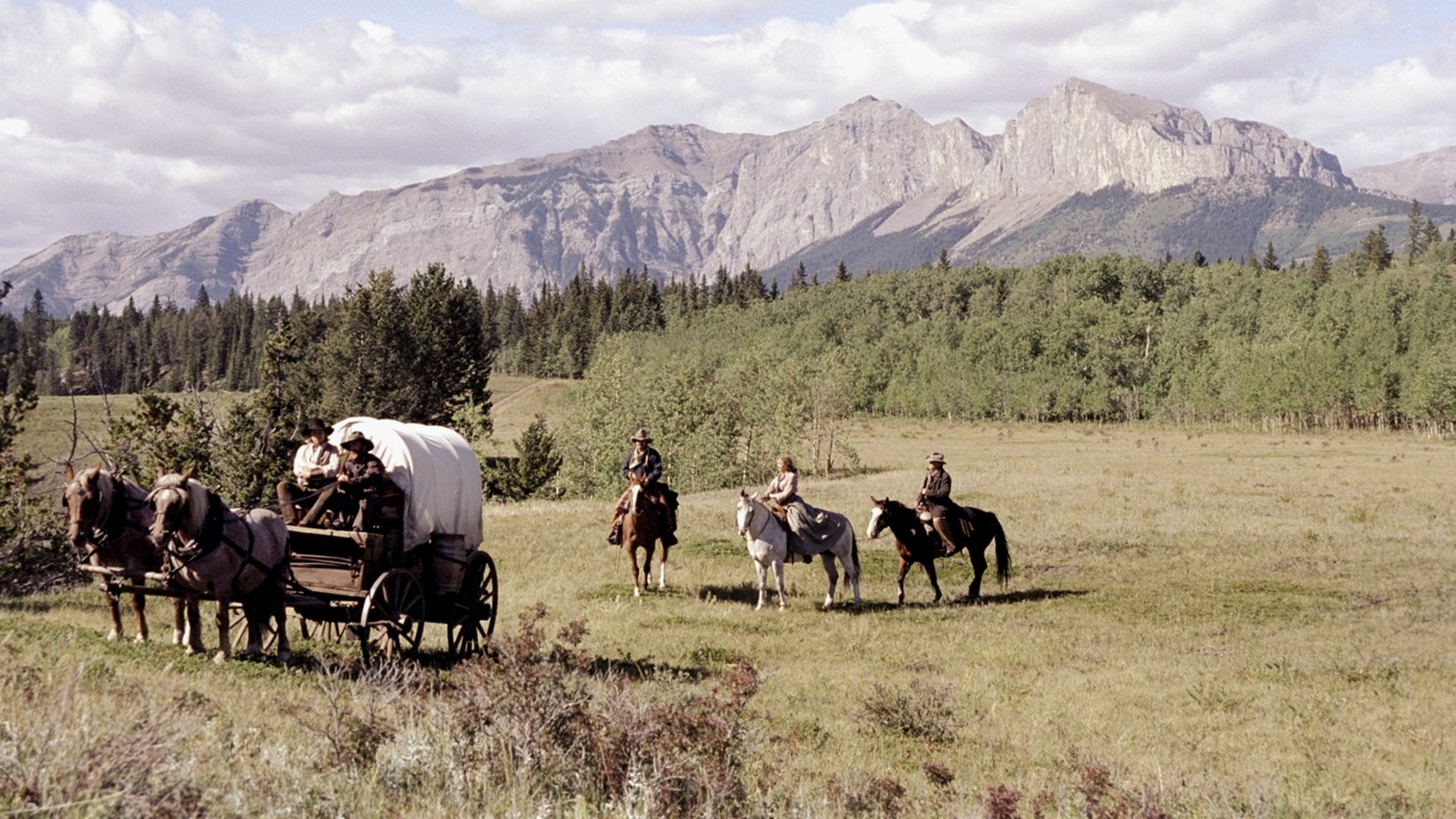
Western is a genre of fiction set primarily in the latter half of the 19th and early 20th century in the Western United States, which is styled the “Old West”. Its stories commonly center on the life of a nomadic cowboy or gunfighter who rides a horse and is armed with a revolver and/or a rifle. Cowboys and gunslingers typically wear broad-brimmed and high-crowned Stetson hats, neckerchief bandannas, vests, spurs, cowboy boots, and buckskins (alternatively dusters). Recurring characters include the aforementioned cowboys, Indians, Spaniards, Mexicans, bandits, lawmen, prostitutes, bounty hunters, outlaws, gamblers, soldiers (especially mounted cavalry), and settlers (farmers, ranchers, and townsfolk). The ambience is usually punctuated with a Western music score, including American folk music and Spanish/Mexican folk music such as country, Native American music, New Mexico music, and rancheras.
The American Film Institute defines Western films as those “set in the American West that [embody] the spirit, the struggle, and the demise of the new frontier.” The term “Western”, used to describe a narrative film genre, appears to have originated with a July 1912 article in Motion Picture World magazine. Most of the characteristics of Western films were part of 19th-century popular Western fiction, and were firmly in place before film became a popular art form. Western films commonly feature protagonists such as cowboys, gunslingers, and bounty hunters, who are often depicted as seminomadic wanderers who wear Stetson hats, bandannas, spurs, and buckskins, use revolvers or rifles as everyday tools of survival and as a means to settle disputes using “frontier justice”. Protagonists ride between dusty towns and cattle ranches on their trusty steeds. Western films often depict conflicts with Native Americans. While early Eurocentric Westerns frequently portray the “Injuns” as dishonorable villains, the later and more culturally neutral Westerns gave Native Americans a more sympathetic treatment. Other recurring themes of Westerns include treks (e.g. The Big Trail) or perilous journeys (e.g. Stagecoach) or groups of bandits terrorizing small towns such as in The Magnificent Seven.
- Rules about voting
- Vote for the Best Western nominees
- See lists and buzzworthy suggestions for other 20th Anniversary Awards
Best Western Film of All Time
Eligible for any Western film of any subgenre.
Buzzworthy: 3:10 to Yuma (2007) • Apache Junction (2021) • The Assassination of Jesse James by the Coward Robert Ford (2007) • Australia (2008) • Back to the Future Part III (1990) • Bad Girls (1994) • The Ballad of Buster Scruggs (2018) • Big Jake (1971) • Blazing Saddles (1974) • Bone Tomahawk (2015) • Brimstone (2016) • Butch Cassidy and the Sundance Kid (1969) • Cat Ballou (1965) • Catch the Bullet (2021) • City Slickers (1991) • The Cowboys (1972) • Cowboys & Aliens (2011) • Cry Macho (2021) • Dances with Wolves (1990) • The Dark Tower (2017) • Dead Man (1995) • The Devil’s Rejects (2005) • Disturbing the Peace (2020) • Django (1966) • Django Unchained (2012) • Django/Zorro (2022) • El Dorado (1966) • El Topo (1970) • First Cow (2019) • A Fistful of Dollars (1964) • For a Few Dollars More (1965) • Forsaken (2015) • Giant (1956) • Gone Are The Days (2018) • The Good the Bad the Weird (2008) • The Good, the Bad and the Ugly (1966) • Gun the Man Down (1956) • Gunfight at the O.K. Corral (1957) • Guns 3: Alias Billy the Kid (2022) • The Harder They Fall (2021) • The Hateful Eight (2015) • Hell or High Water (2016) • High Noon (1952) • High Plains Drifter (1973) • Hostiles (2017) • How the West Was Won (1962) • Jeremiah Johnson (1972) • Jonah Hex (2010) • The Legend of Zorro (2005) • Legends of the Fall (1994) • The Lone Ranger (2013) • The Longest Ride (2015) • The Magnificent Seven (1960) • The Magnificent Seven (2016) • The Man from Snowy River (1982) • The Mask of Zorro (1998) • Maverick (1994) • McCabe and Mrs. Miller (1971) • McLintock! (1963) • A Million Ways to Die in the West (2014) • The Missing (2003) • Never Grow Old (2019) • News of the World (2020) • Of Mice and Men (1992) • Old Henry (2021) • Old Yeller (1957) • Once Upon a Time in the West (1968) • Open Range (2003) • The Outlaw Josey Wales (1976) • Pale Rider (1985) • The Power of the Dog (2021) • The Proposition (2005) • The Quick and the Dead (1995) • Rango (2011) • Ravenous (1999) • Red River (1948) • Red Sun (1971) • The Revenant (2015) • The Ridiculous 6 (2015) • Rio Bravo (1959) • Rio Lobo (1970) • The Searchers (1956) • Seven Brides for Seven Brothers (1954) • Shane (1953) • Silverado (1985) • The Sisters Brothers (2018) • Slow West (2015) • Spirit Untamed (2021) • Spirit: Stallion of the Cimarron (2002) • Stagecoach (1939) • Three Amigos! (1986) • Tombstone (1993) • True Grit (1969) • True Grit (2010) • True History of the Kelly Gang (2019) • The Undefeated (1969) • Unforgiven (1992) • Westworld (1973) • The Wild Bunch (1969) • Wild Wild West (1999) • Wyatt Earp (1994) • Young Guns (1988) • Young Guns II (1990)
Best Classic Western Film
The first known Western narrative film is the British short Kidnapping by Indians, made by Mitchell and Kenyon in Blackburn, England, in 1899. The Great Train Robbery (1903, based on the earlier British film A Daring Daylight Burglary), Edwin S. Porter’s film starring Broncho Billy Anderson, is often erroneously cited as the first Western, though George N. Fenin and William K. Everson point out that the “Edison company had played with Western material for several years prior to The Great Train Robbery. ” Nonetheless, they concur that Porter’s film “set the pattern – of crime, pursuit, and retribution – for the Western film as a genre.” The film’s popularity opened the door for Anderson to become the screen’s first cowboy star; he made several hundred Western film shorts. So popular was the genre that he soon faced competition from Tom Mix and William S. Hart. The Golden Age of the Western is epitomized by the work of several prominent directors such as John Ford, Howard Hawks, Anthony Mann, and King Vidor.
Buzzworthy: 3:10 to Yuma (1957) • Annie Oakley (1935) • Apache (1954) • The Bravados (1958) • Broken Arrow (1950) • Canyon Passage (1946) • Cattle Queen of Montana (1954) • Comanche Station (1960) • Duel in the Sun (1946) • El Dorado (1966) • Forty Guns (1957) • The Great Train Robbery (1903) • Gunfight at the O.K. Corral (1957) • The Gunfighter (1950) • Johnny Guitar (1954) • Kidnapping by Indians (1899) • The Last Wagon (1956) • The Magnificent Seven (1960) • The Man from Laramie (1955) • The Man Who Shot Liberty Valance (1962) • Man Without a Star (1955) • My Darling Clementine (1946) • The Ox-Bow Incident (1943) • Red River (1948) • Rio Bravo (1959) • Run of the Arrow (1957) • The Searchers (1956) • Shane (1953) • Silver Lode (1954) • Stagecoach (1939) • The Tall T (1957) • The Tin Star (1957) • Vera Cruz (1954) • Wichita (1955) • Winchester ’73 (1950) • Yellow Sky (1948)
Best Epic Western Film
The epic Western is a subgenre of the Western that emphasizes the story of the American Old West on a grand scale. Many epic Westerns are commonly set during a turbulent time, especially a war, as in Sergio Leone’s The Good, the Bad and the Ugly (1966), set during the American Civil War, or Sam Peckinpah’s The Wild Bunch (1969), set during the Mexican Revolution. One of the grandest films in this genre is Leone’s Once Upon a Time in the West (1968), which shows many operatic conflicts centered on control of a town while using wide-scale shots on Monument Valley locations against a broad running time.
Buzzworthy: The Assassination of Jesse James by the Coward Robert Ford (2007) • The Big Country (1958) • Cimarron (1960) • Dances with Wolves (1990) • Django Unchained (2012) • Duck, You Sucker! (1971) • Duel in the Sun (1946) • Giant (1956) • The Good, the Bad and the Ugly (1966) • Heaven’s Gate (1980) • How the West Was Won (1962) • The Iron Horse (1924) • Once Upon a Time in the West (1968) • The Revenant (2015) • The Searchers (1956) • The Wild Bunch (1969)
Best Comedic Western Film
This subgenre is imitative in style to mock, comment on, or trivialize the Western genre’s established traits, subjects, auteurs’ styles, or some other target by means of humorous, satiric, or ironic imitation or parody. A prime example of comedy Western includes The Paleface (1948), which makes a satirical effort to “send up Owen Wister’s novel The Virginian and all the cliches of the Western from the fearless hero to the final shootout on Main Street.” The Paleface “features a cowardly hero known as “Painless” Peter Potter (Bob Hope), an inept dentist, who often entertains the notion that he is a crack sharpshooter and accomplished Indian fighter”.
Buzzworthy: The Apple Dumpling Gang (1975) • Blazing Saddles (1974) • Cat Ballou (1965) • City Slickers (1991) • City Slickers II: The Legend of Curly’s Gold (1994) • Frankie and Johnny (1966) • The Good Guys and the Bad Guys (1969) • The Great Bank Robbery (1969) • Hearts of the West (1975) • Holes (2003) • Home on the Range (2004) • Hot Lead and Cold Feet (1975) • Kid Blue (1973) • The Knockout Kid (1925) • Lightning Jack (1944) • Little Big Man (1970) • Lust in the Dust (1985) • Mail Order Bride (1964) • A Million Ways to Die in the West (2014) • My Little Chickadee (1940) • Once Upon a Horse… (1958) • The Paleface (1948) • The Rounders (1965) • Three Amigos (1986)
Best Revisionist Western Film
The Revisionist Western, Anti-Western or Post-Western is a subgenre of the Western film that subverts the standard format or theme of the Western. The traditional Western generally follows a standard format, in which a strong, male lead character, through direct action, leads the forces of a civilized people against the uncivilized forces that stand in their way. Traditionally, this pitted the “good guys”, usually lawmen, against the “bad guys”, usually criminals or Native Americans. Revisionist westerns subverted this standard format in a number of ways, such as setting criminals as the protagonist, or presenting morally ambiguous storylines without clear heroes. They often featured antiheroes or sympathetic villains more than in earlier films, blurring the traditionally clear boundaries between “right” and “wrong”. In general, these films sought to depict a world in which actions could not be strictly judged as righteous or evil, pulling narrative emphasis away from the struggle between “good” and “bad”, toward survival amidst ambiguity. Some of the earliest revisionist Westerns came out in the 1950s in the milieu of McCarthyism and attempted to strike back against the blacklisting of the film industry of the time. By the time of the loosening, and later abolition, of the restrictive Hays Code in the 1960s, many directors of the New Hollywood generation took aim at the Western and each produced their own classics in the genre.
Buzzworthy: The Assassination of Jesse James by the Coward Robert Ford (2007) • Buffalo Bill (1944) • Butch Cassidy and the Sundance Kid (1969) • The Culpepper Cattle Co. (1972) • Dances with Wolves (1990) • Dead Man (1995) • Death Rides a Horse (1967) • Django Unchained (2012) • El Topo (1970) • Greaser’s Palace (1972) • The Great Northfield Minnesota Raid (1972) • Gunfight at Red Sands (1964) • The Hateful Eight (2015) • Heaven’s Gate (1980) • High Noon (1952) • Johnny Guitar (1954) • Lemonade Joe (1964) • Little Big Man (1970) • The Long Riders (1980) • The Magnificent Seven (1960) • A Man from the Boulevard des Capucines (1987) • McCabe & Mrs. Miller (1971) • News of the World (2020) • No Country for Old Men (2007) • The Outlaw Josey Wales (1976) • The Ox-Bow Incident (1943) • Pale Rider (1985) • The Revenant (2015) • Ride the High Country (1962) • Ride with the Devil (1999) • The Shooting and Ride in the Whirlwind (1966) • The Sisters Brothers (2018) • The Sons of the Great Mother Bear (1966) • True Grit (1969) • True Grit (2010) • Unforgiven (1992) • Walker (1987) • The Wild Bunch (1969)
Best Neo-Western Films
Neo-Western or Contemporary Western films have contemporary U.S. settings and use Old West themes and motifs (a rebellious antihero, open plains and desert landscapes, and gunfights). These films have been on the rise since the release of Joel and Ethan Coen’s No Country for Old Men (2007). For the most part, they still take place in the American West and reveal the progression of the Old West mentality into the late 20th and early 21st centuries. This subgenre often features Old West-type characters struggling with displacement in a “civilized” world that rejects their outdated brand of justice. Taylor Sheridan’s filmography can be used as a template to identify what being a neo-Western film means, with three identifying themes. First is the lack of rules, with morals guided by the character’s or audience’s instincts of right and wrong rather than by governance. The second is characters searching for justice. The third theme, characters feeling remorse, connects the neo-Western film to the broader Western genre, reinforcing a universal theme that consequences come with actions.
Buzzworthy: Assault on Precinct 13 (1976) • Bad Day at Black Rock (1955) • Bring Me the Head of Alfredo Garcia (1974) • Brokeback Mountain (2005) • Comes a Horseman (1978) • Crazy Heart (2009) • Desperado (1995) • Dirty Harry (1971) • Don’t Come Knocking (2005) • Down in the Valley (2005) • El Camino: A Breaking Bad Movie (2019) • Extreme Prejudice (1987) • Flashpoint (1984) • The Getaway (1972) • Gran Torino (2008) • Hearts of the West (1975) • Hell or High Water (2016) • Hud (1963) • J. W. Coop (1972) • Junior Bonner (1972) • Kill Bill: Volume 2 (2004) • Lone Star (1996) • Lonely Are the Brave (1962) • The Lusty Men (1952) • Midnight Cowboy (1969) • No Country for Old Men (2007) • Nomadland (2020) • Once Upon a Time in Hollywood (2019) • Once Upon a Time in Mexico (2003) • Out of the Furnace (2013) • Robert Rodríguez’s El Mariachi (1992) • The Rover (2014) • The Three Burials of Melquiades Estrada (2005) • The Way of the Gun (2000) • Wind River (2017)
Favorite Western Film About Outlaws
Early westerns had a code where the lawman always got the “bad guy,” and justice was always served. Later on, filmmakers began to show more nuances outlaws, and even romanticized them. Which are your favorites of either sort?
Buzzworthy: 3:10 to Yuma (2007) • A Million Ways to Die in the West (2014) • Back to the Future Part III (1990) • Blazing Saddles (1974) • The Bravados (1958) • Butch Cassidy and the Sundance Kid (1969) • Cowboys & Aliens (2011) • Django (1966) • Django Unchained (2012) • A Fistful of Dollars (1964) • For a Few Dollars More (1965) • The Good, the Bad and the Ugly (1966) • The Great Race (1965) • The Hateful Eight (2015) • Heaven’s Gate (1980) • High Noon (1952) • High Plains Drifter (1973) • How the West Was Won (1962) • The Legend of Zorro (2005) • The Lone Ranger (2013) • The Magnificent Seven (2016) • The Man Who Shot Liberty Valance (1962) • Maverick (1994) • Old Henry (2021) • Pale Rider (1985) • The Quick and the Dead (1995) • Rango (2011) • The Ridiculous 6 (2015) • Shanghai Noon (2000) • Silverado (1985) • The Sisters Brothers (2018) • Stagecoach (1939) • Tombstone (1993) • The Train Robbers (1973) • True Grit (2010) • True History of the Kelly Gang (2019) • Unforgiven (1992) • The War Wagon (1967) • The Wild Bunch (1969) • Wyatt Earp (1994) • Young Guns (1988) • Young Guns II (1990)
Buzzworthy Suggestions for Other Awards
- Best Overall Awards
- Acting Awards
- Action Film Awards
- Comedic Film Awards
- Crime Film Awards
- Historical and Pseudo-Historical Film Awards
- Holiday Movie Awards
- Horror Film Awards
- LGBTQ+ Film Awards
- Musicals and Music Film Awards
- Science Fiction & Fantasy Film Awards
- War Film Awards
- Western Film Awards
- Other Miscellaneous Film Genre Awards


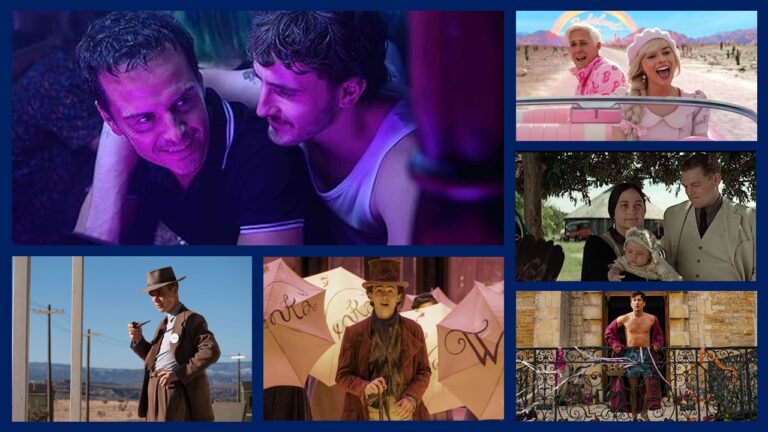
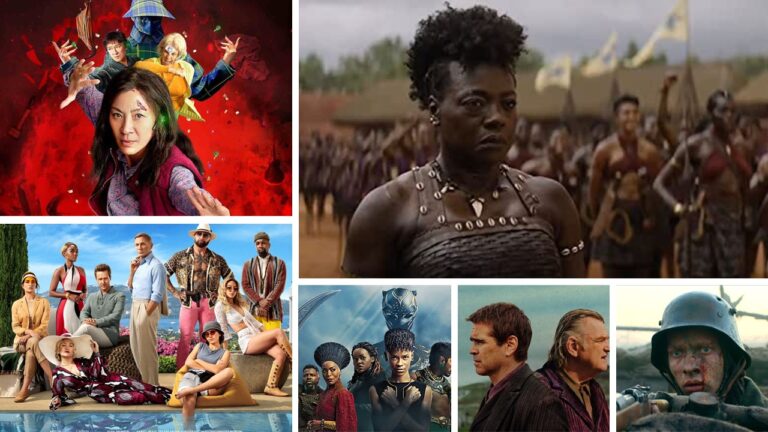

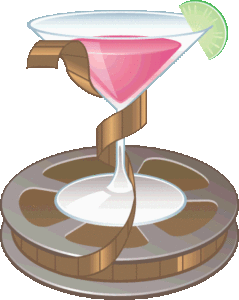

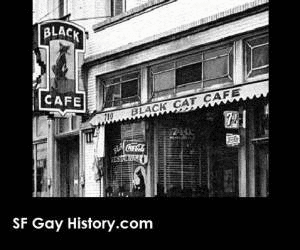
Recent Comments